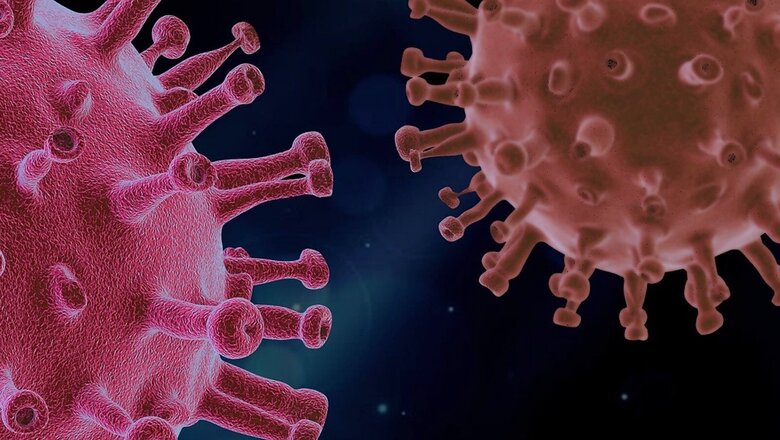
views
Boston University is refuting a series of claims about research at the University’s National Emerging Infectious Diseases Laboratories (NEIDL) to have developed a new covid stain. The reports, which first appeared on Monday in the United Kingdom’s Daily Mail, claimed researchers at the lab had “created a new deadly COVID strain.” However, the claims, which were made by Daily Mail, have now been turned down by the university experts in an official statement which revealed that the news reports and claims were “false and inaccurate”.
The University also noted that the research was reviewed and approved by the Institutional Biosafety Committee (IBC), which consists of scientists as well as local community members, and that the Boston Public Health Commission had approved the research.
“They’ve sensationalized the message, they misrepresent the study and its goals in its entirety,” says Ronald B. Corley, NEIDL director and BU Chobanian & Avedisian School of Medicine chair of microbiology, of the news reports.
A team of Boston University scientists claimed that they have made a hybrid virus — combining Omicron and the original Wuhan strain — that killed 80 per cent of mice in a study, according to DailyMail.com.
Read | 12 Researchers From LPU in World’s Top 2% Scientists List by Stanford
The study set out to examine the spike proteins on the SARS-CoV-2 Omicron variant (BA.1). Researchers were interested in comparing the variant with the original virus strain, known as the Washington strain. They wanted to find out if the virus was truly less virulent, says Corley, “simply because it wasn’t infecting the same cells as the initial strain.” They were “interested in what part of the virus dictates how serious of a disease a person will get.”
BU is refuting a series of false media claims about research at its National Emerging Infectious Diseases Laboratories. In a statement, the University called the reporting “false and inaccurate.”Details ⬇️https://t.co/8H0lvoQgkB
— Boston University (@BU_Tweets) October 18, 2022
But Corley says the news reports pulled one line from the paper’s abstract out of context, with the Daily Mail suggesting in its headline that the researchers had created a “deadly Covid strain with an 80 percent kill rate.” The newspaper went on to make a series of other misleading claims, including that the study was “gain of function research,” alleging researchers set out to make a more deadly virus.
Not true, says Corley. And the University’s statement strongly denied it.
“We want to address the false and inaccurate reporting about Boston University COVID-19 research, which appeared today in the Daily Mail,” said the BU statement. “First, this research is not gain-of-function research, meaning it did not amplify the Washington state SARS-CoV-2 virus strain or make it more dangerous. In fact, this research made the virus replicate less dangerous.”
Corley says the line pulled out of context actually had nothing to do with the virus’ effect on humans. The study began in a tissue culture, then moved to an animal model.
“The animal model that was used was a particular type of mouse that is highly susceptible, and 80 to 100 percent of the infected mice succumb to disease from the original strain, the so-called Washington strain,” says Corley. “Whereas Omicron causes a very mild disease in these animals.”
That 80 percent number is what the media reports latched onto, misrepresenting the study and its goals.
“This was a statement taken out of context for the purposes of sensationalism,” says Corley, “and it totally misrepresents not only the findings, but [also] the purpose of the study.”
In fact, according to BU’s statement, “this research mirrors and reinforces the findings of other, similar research performed by other organizations, including the FDA.” That’s supported by one of the lead researchers on the study, Mohsan Saeed, a NEIDL investigator.
“Consistent with studies published by others, this work shows that it is not the spike protein that drives Omicron pathogenicity, but instead other viral proteins,” says Saeed, a BU Chobanian & Avedisian School of Medicine assistant professor of biochemistry. “Determination of those proteins will lead to better diagnostics and disease management strategies.”
Read all the Latest Education News and Breaking News here
















Comments
0 comment